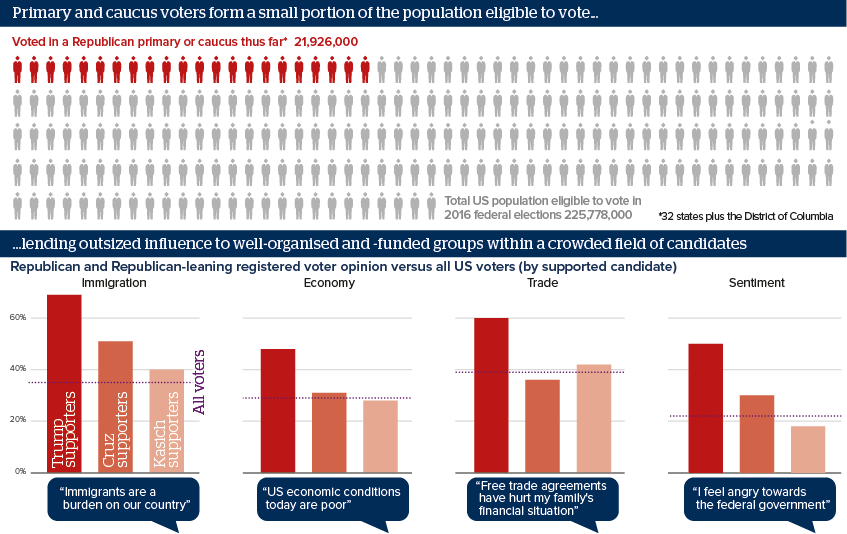Republicans face deeper divisions than Trump candidacy
Splits on foreign policy, trade, immigration and social issues wrong-foot the party and risk a pre-election rift

Source: US Elections Project, Pew Research Centre, Oxford Analytica
Outlook
The Republican race for the presidential nomination may see a contested July convention in Cleveland. Strategic voting has boosted Texas Senator Ted Cruz outside of his natural base, Ohio Governor John Kasich has refused to drop out and mainstream animus for frontrunner Donald Trump is increasing.
Should Trump not secure the 58% of remaining delegates he needs to win on the first ballot, this shortfall would throw the nomination into the open, with the outcome hinging on unknown delegate preferences.
While Trump's candidacy and controversial views have proved divisive for the party faithful in their own right, the rancour of the primaries also reflects obstacles facing the Republican Party as it tries to craft a unified conservative narrative about changes to the US economy, society and role in global affairs ahead of November 8.
Impacts
- While Democrats also face internal divisions, Hillary Clinton is the favourite to win the White House in November 2016.
- Voter discontent stemming from primaries is unlikely to lend itself to substantial support for a third party.
- Conservative base anger is likely to block party elites from moving towards the centre of the political spectrum.
- Losses by Republicans in liberal-leaning states due to higher turnout in presidential election years may result in a Democratic Senate.
See also
- Trump highlights pitfalls of election prediction - Jun 21, 2016
- US Republicans face splits beyond Trump candidacy - Mar 17, 2016
- More graphic analysis